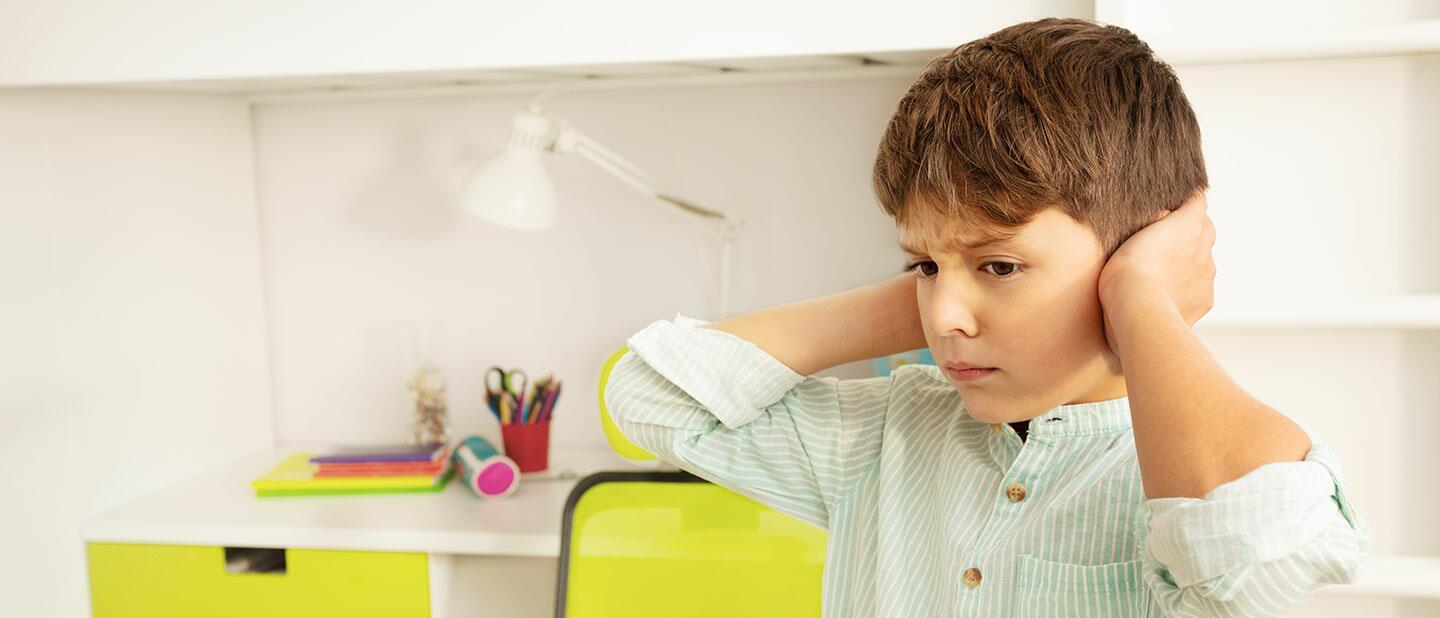Hearing protection for support and therapy with autism, ADHD and sensitive children
Can hearing protection be of help?

Hearing protection for support and therapy with autism, ADHD and sensitive children
What is autism?
Autism is a developmental disorder that is usually congenital. However, autism can also develop as a result of brain damage at a later stage. In all cases, however, it is an incurable personality disorder.
The processing of information in the brain of affected children or adults is massively disturbed. Autistic people often behave completely differently. At first glance, however, you often cannot see this disorder. Autism shows itself almost exclusively in behavioural patterns and a so-called "insular talent". Compulsions or abilities, so-called stereotypical behaviours, often develop. Autistic people often also have impressive strengths in relation to their insular gifts, although there are clear differences in the degree of expression. Many autistic people have a tendency towards an extreme form of orderliness and, for example, compulsively sort objects in always the same order. Other forms of autism show strengths in memory, for example in solving arithmetic problems or in learning words or number sequences of any kind. However, there are also forms of autism in which people withdraw completely, hardly communicate or always perform one and the same action. All of the above-mentioned characteristics can also occur in combination.
What causes autism?
Autistic children or adults are often inhibited in their social behaviour. They have difficulties with close personal relationships, which often leads to irritations in communication. Especially in the parent/child relationship, this can lead to conflicts, as the parents feel unloved or find it difficult to communicate their affection. Autistic children can show their affection only with difficulty or not at all. People who have little experience with autism often perceive this as ignorant, cold or dismissive. Difficulties in social behaviour also cause problems in communicating with others. Lack of eye contact, clearly looking away, a feeling of discomfort in the presence of strangers and problems concentrating are clear signs. Due to a lack of perception, autistic people sometimes find it difficult or impossible to adjust to a conversation partner. A lack of empathy probably describes this circumstance best. Problems in social interaction are therefore the main difficulty for people with autism.
What behaviours are typical of autism?
Autistic children often withdraw due to their lack of social skills, like to be alone or even completely isolate themselves from other people. Trying to get them out of this behaviour can cause them to become agitated and upset their inner balance. Even panic attacks and aggressiveness can develop when the environment or situation changes. Especially dealing with strangers is often noticeably uncomfortable for autistic people. External stimuli such as noise, hectic or stress can completely throw them off their game. Even everyday situations can be enough (changes in the environment, sudden noises or bright lights). Situations that are completely normal and everyday for other people can already bring autistic people into a state of emergency.
How can KiddyPlugs hearing protection help with autism or even ADHD?
This short excerpt shows the importance that peace and quiet can have for autistic people or people with Asperger syndrome. Hearing protection can be used here as therapy or as support in everyday life. The affected children can create their own personal moment with our KIDDYPLUGS children's hearing protection and thereby regain calm and balance, take themselves out of hectic or stressful situations, calm down. Parents and family members have the opportunity with our hearing protection to take their children out of stressful situations and give them back a sense of control over themselves.
Unfortunately, we have not yet found any official studies on the subject of autism and hearing protection, but all the objective facts about this clinical picture may well speak in favour of the benefits of hearing protection. It is certainly worth a try.
Is hearing protection paid for by the health insurance?
We often receive enquiries as to whether hearing protection is paid for by the health insurance. Since, according to the AOK, this is a prophylactic aid, almost all health insurance companies do not pay for earmuffs. However, it can certainly be decided differently in individual cases. Please contact your health insurance company,
We would be happy to hear about your experience with hearing protection and autism. If you have any questions about hearing protection and autism, please do not hesitate to contact us.
An article by:
KIDDYPLUGS
kinder-gehoerschutz.de ©2020
Source: autismus Deutschland e.V.
 EN
EN
 DE
DE
